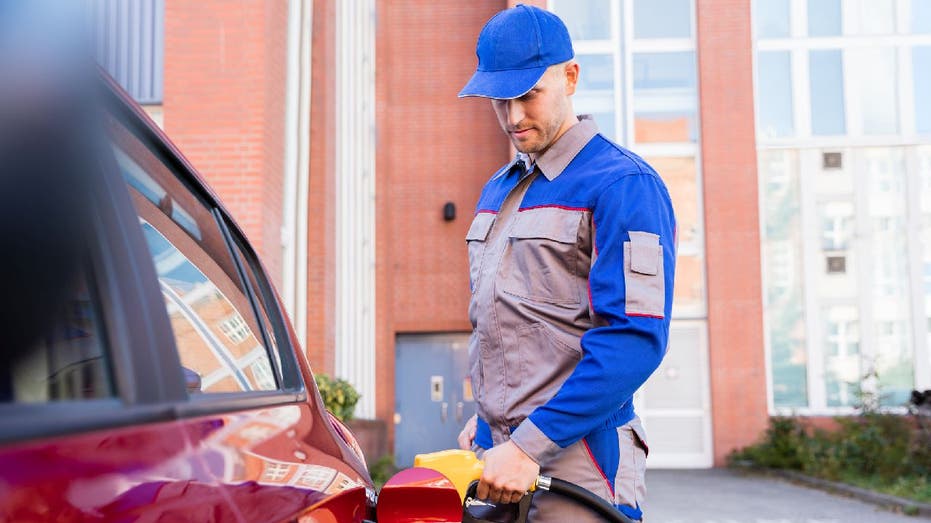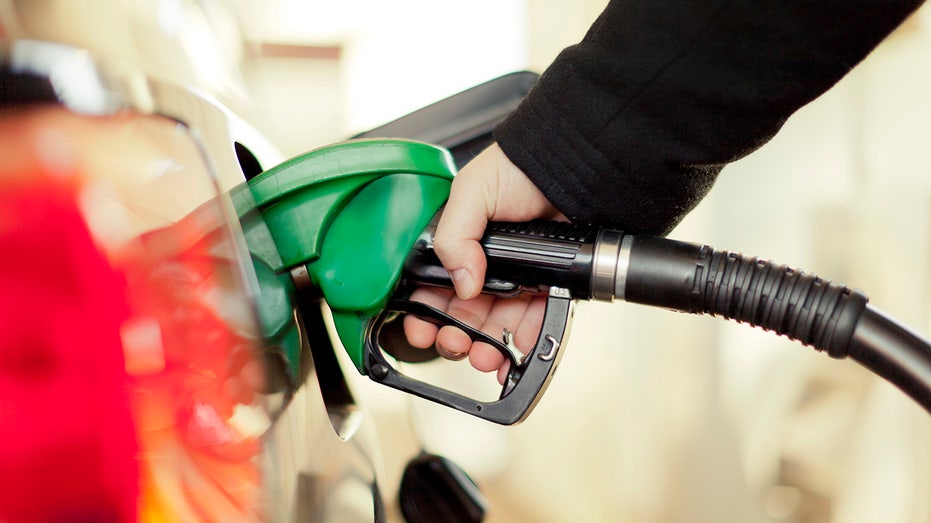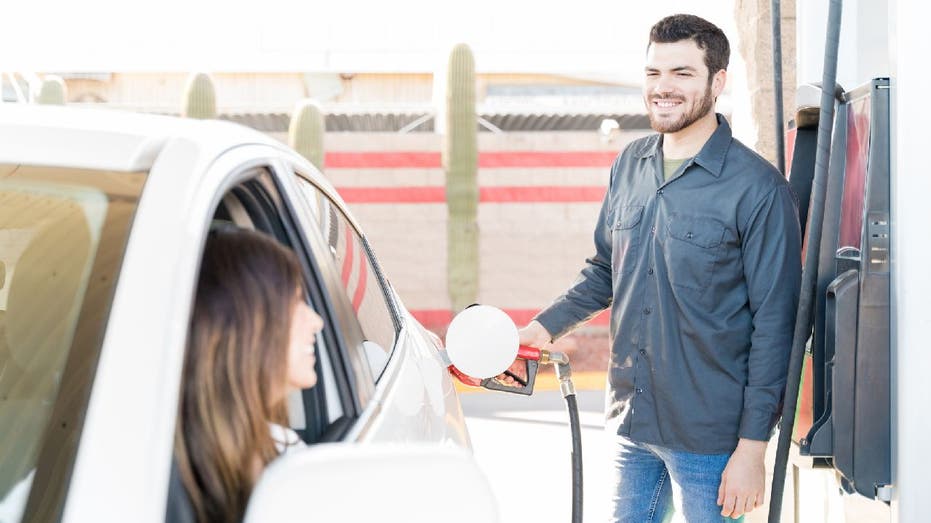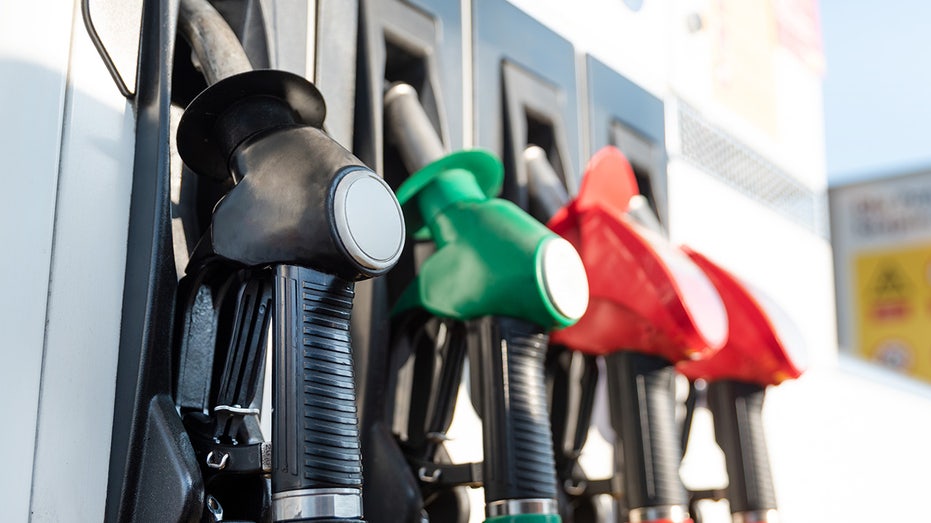Why New Jersey and Oregon won't let you pump gas yourself
Here's what each state's legal codes say about the ban on self-service gas pumping
Gas prices at levels Americans 'simply cannot afford': Oil analyst
The Schork Group principal Stephen Schork weighs in on oil markets as gas prices remain at elevated levels and explains his fears amid the economic landscape.
No matter the price of gasoline, there are two states in which self-service gas pumping remains illegal.
Both New Jersey and Oregon prohibit residents from pumping their own gas largely as a public safety matter — or at least that’s what state legislators say about the matter.
The finer details, however, are worth reviewing.
GAS PRICES BY THE NUMBERS: KEY HISTORICAL FACTS AMID SURGING FUEL COSTS
If you’ve ever wondered why the two states are anti-self-service, here’s a quick look at the legal codes that ban gas stations from letting people pump their own gas.
Here's the reasoning behind the decision as well.
N.J.’s self-service gas prohibition goes back to 1949

Gas stations that offer full service have station attendants who pump gas for customers. (iStock / iStock)
The Garden State passed the Retail Gasoline Dispensing Safety Act in 1949 — which is still in effect to this day.
As of publication date right now, New Jersey’s legislature has published 10 findings and declarations that detail why people aren’t allowed to pump gas themselves.
Fire hazards: The legislature says that "it is in the public interest" for gas operators to pump fuel because they can "ensure compliance with appropriate safety procedures, including turning off vehicle engines and refraining from smoking while fuel is dispensed."
Helps cashiers: The legislature says gas station cashiers can’t "maintain a clear view" of self-service customers while they’re handling in-store transactions, which makes it "far more difficult to enforce compliance with safety procedures."
US IS ON ‘CUSP OF RECESSION’ IF NOT ALREADY THERE, OIL ANALYST WARNS
Ensures compliance: The legislature reiterates that the state "needs" a self-service gas ban, so gas station attendants can ensure safety procedures are followed.
Insurance is a factor: The N.J. legislature says self-service gas stations have "higher general liability insurance premium rates" because there’s increased risk when people leave their vehicles to pump gas — which could include exposure to flammable liquids, crime, falls or personal injury.
Gas fumes: The legislature says gas fumes pose a "health hazard," especially for pregnant women. There is no mention of health hazards for gas station attendants.

New Jersey is one of two states that prohibits the general public from pumping gas into their own vehicles at gas stations. (iStock / iStock)
Levels out the cost of full-service: The legislature says a statewide self-service gas ban prohibits full-service gas stations from charging "significantly higher prices" when competing with self-service gas stations.
This, in turn, helps "low income individuals" avoid having to "undergo the inconvenience and hazards of dispensing their own gasoline" — which the legislature says could be viewed as discrimination if there was no ban in place.
VIRGINIA THIEVES STOLE THOUSANDS IN FUEL FROM GAS STATION AND RESOLD AT DISCOUNT, COPS SAY
Vehicle repairs: The legislature says self-service stations have "contributed to the diminished availability of repair facilities and maintenance services at gasoline stations."
Maintenance checks: The legislature says customers are less likely to have or conduct "needed maintenance checks" because there’s usually a higher price associated with full service (outside of New Jersey).
The N.J. legislature says self-service gas prohibition promotes "common welfare" because it provides "increased safety and convenience without causing economic harm to the public."
Gas attendants in the state can conduct these checks, which the legislature says helps customers avoid vehicle neglect, road dangers and costly repairs associated with "deferred maintenance."
No cost disparity observed: The legislature says its self-service gas ban "does not constitute a restraint of trade" because it hasn’t found "conclusive evidence that self-service gasoline provides a sustained reduction in gasoline prices."
Public welfare: The legislature says self-service gas prohibition promotes "common welfare" because it provides "increased safety and convenience without causing economic harm to the public in general."
WHITE HOUSE CONSIDERING SENDING GAS REBATE CARDS TO AMERICANS: REPORT
The full Retail Gasoline Dispensing Safety Act and Regulations can be found on the state’s Department of Labor and Workforce Development webpage.
Oregon’s self-service gas ban goes back to 1951, but …

Customers who are served by gas station attendants can remain in their car instead of having to exit the car to pump gas. (iStock / iStock)
The Beaver State imposed a self-service gas ban two years after New Jersey did so.
However, the statewide ban in Oregon was eased in 2018 with House Bill 2482, which allows self-service gas pumping in counties that have fewer than 40,000 residents.
Many of the counties that allow self-service gas stations are in rural areas that are located in the eastern part of the state.
There was a time during the COVID-19 pandemic when self-service gas rules were changed statewide for health and safety reasons. Yet that temporary gas attendant suspension expired on May 23, 2020, according to the Office of the State Fire Marshall.
RECORD HIGH GAS PRICES: WEST VIRGINIA, MONTANA, COLORADO SEE BIGGEST WEEKLY JUMPS
Once the suspension expired, the state reverted to full-service gas station operations in counties where self-service gas pumping is "prohibited at all times."
Oregon’s Office of the State Fire Marshall says gasoline is considered a "Class 1 flammable liquid" — meaning it has a flash point that’s below 100 degrees Fahrenheit.
For this reason, the state prohibits self-service gas pumping "in high population counties" and requires only gas station "owners, operators, and their employees…to use or manipulate any pump, hose, pipe or other device used at the facility to dispense Class 1 flammable liquids into a fuel tank of a motor vehicle or container."
Gas stations are also required to have attendants who can "provide equal access to fuel" in accordance with the Americans with Disabilities Act, the Office of the State Fire Marshall states.
GET FOX BUSINESS ON THE GO BY CLICKING HERE
The office handles "complaints about compliance" with self-service gas rules.
Gas station attendant and fuel station stats

There are fewer than 20,000 gas station attendants in the U.S., according to data from the U.S. Bureau of Labor Statistics. (iStock)
The U.S. Bureau of Labor Statistics says there were 18,780 service station attendants working at gas stations throughout the country in 2021.
In terms of pay, the government agency found that service station attendants had a median hourly pay of $13.67 and a median annual salary of $28,430.
The American Petroleum Institute reports that there are more than 145,000 fueling stations in the U.S., according to data shared by the National Association of Convenience Stores (NACS).
CLICK HERE TO READ MORE ON FOX BUSINESS
An updated industry report from the NACS states that approximately 116,641 of these fueling stations are equipped with convenience stores, which reportedly make 80% of motor fuel sales in the country.




















